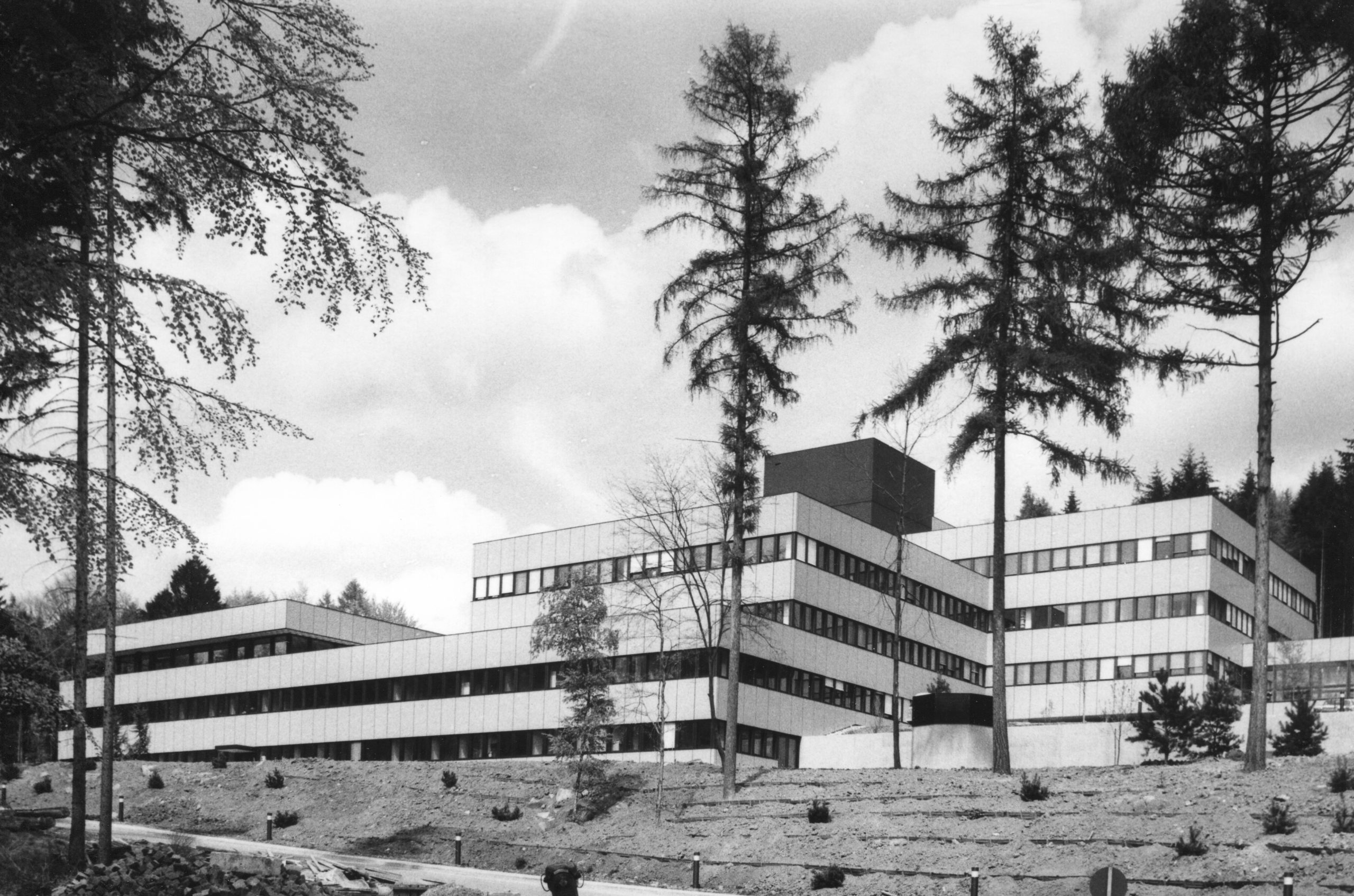Flashback May 1978: The EMBL Heidelberg Inauguration Day

The 5th of May 1978 is one of the historical moments of the EMBL development as it was the day of the inauguration of the EMBL Headquarters in Heidelberg. The decision for the site selection of the Laboratory was taken in 1971 by the European Molecular Biology Conference Working Group “Site of the Laboratory”. The Headquarters Agreement between the German Government and EMBL was signed in 1974.
The construction project of the Laboratory premises started in 1975. By December 1977 the EMBL staff and scientists moved from their temporary offices and laboratories in Deutsches Krebsforschungszentrum (DKFZ), the University of Heidelberg Biochemistry Institute, and Max-Planck-Institut für Kernphysik (MPIK), to the new Laboratory.
The inauguration day was celebrated with an official ceremony which was attended by worldwide noted scientists who had contributed to the establishment and work of the Laboratory, as well as prominent German and European politicians. The President of the Federal Republic of Germany at that time, Dr. Walter Scheel, was scheduled to attend the event but he was last minute replaced by the Minister of Research and Technology of the Federal Republic of Germany, Dr. Volker Hauff.
The opening ceremony took place in the auditorium of the Max-Planck-Institut für Kernphysik, where speeches were given by the First Director-General of the EMBL, Sir John Kendrew , the Mayor of the City of Heidelberg, Reinhold Zundel, the Minister of Culture of the Land of Baden-Württemberg Professor, Wilhelm Hahn, the Minister Dr. Volker Hauff , and the President of the EMBL Council and Professor at the University of Amsterdam, Edward Charles Slater.



The inauguration ceremony was followed by a lunch given in the Hotel Europäischer Hof , where short talks given by Minister Dr. Volker Hauff, the first Secretary General of EMBO and Professor of the University of Rome, Jeffries Wyman, and the Chairman of the EMBO Council and Professor at the Weizmann Institute of Science, immunologist Michael Sela .
The programme of the inauguration day was continued with a special symposium arranged for the occasion and lectures given by biologist and Nobel Prize Winner, Dr. Sydney Brenner, who was represented Medical Research Council (MRC) Laboratory of Molecular Biology in Cambridge, by biophysical chemist and Nobel Prize Winner, Professor Manfred Eigen from Max Planck Institute for Biophysical Chemistry, by biologist and Professor François Gros, Director of the Pasteur Institute, and by immunologist and Nobel Prize Winner, Professor Niels Kaj Jerne, representative of the Basel Institute for Immunology (BII).
The guests also visited the Laboratory and had the opportunity to meet the different research groups. At that time, the Laboratory consisted of 19 research groups in the areas of Cell Biology, Recombinant DNA, Biological Structures, and Instrumentation. One of the first EMBL Group leaders and Senior Scientists Professor Kai Simons welcomed the Minister Dr. Volker Hauff in the Laboratory and gave a tour in the premises.
The inauguration day of EMBL in Heidelberg was a milestone towards the beginning of an official coordinated international collaboration in the field of molecular biology in Europe. Today, with its expansion in six sites across Europe, its partnerships and collaborations with institutions and scientists across the globe, the EMBL fosters the international collaboration between life science communities and plays a leading role in the creation of scientific strategy and policy in Europe and worldwide.




